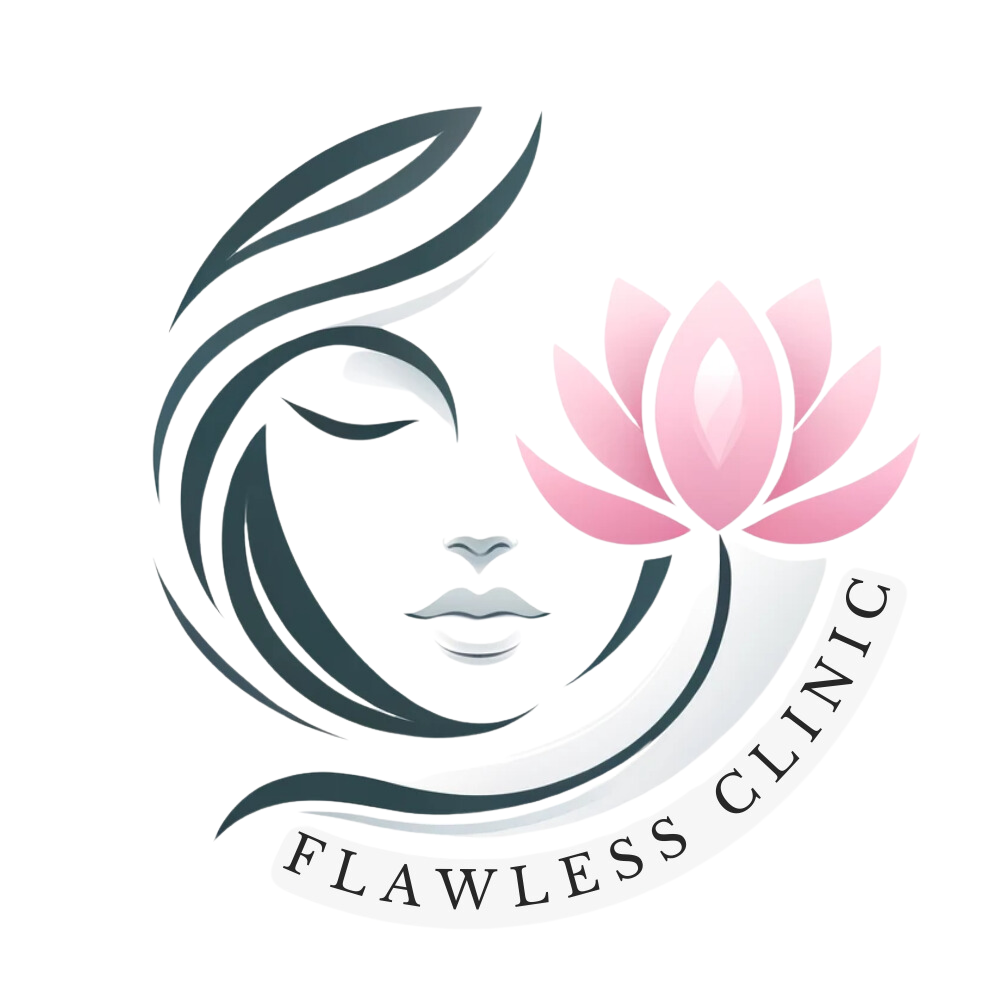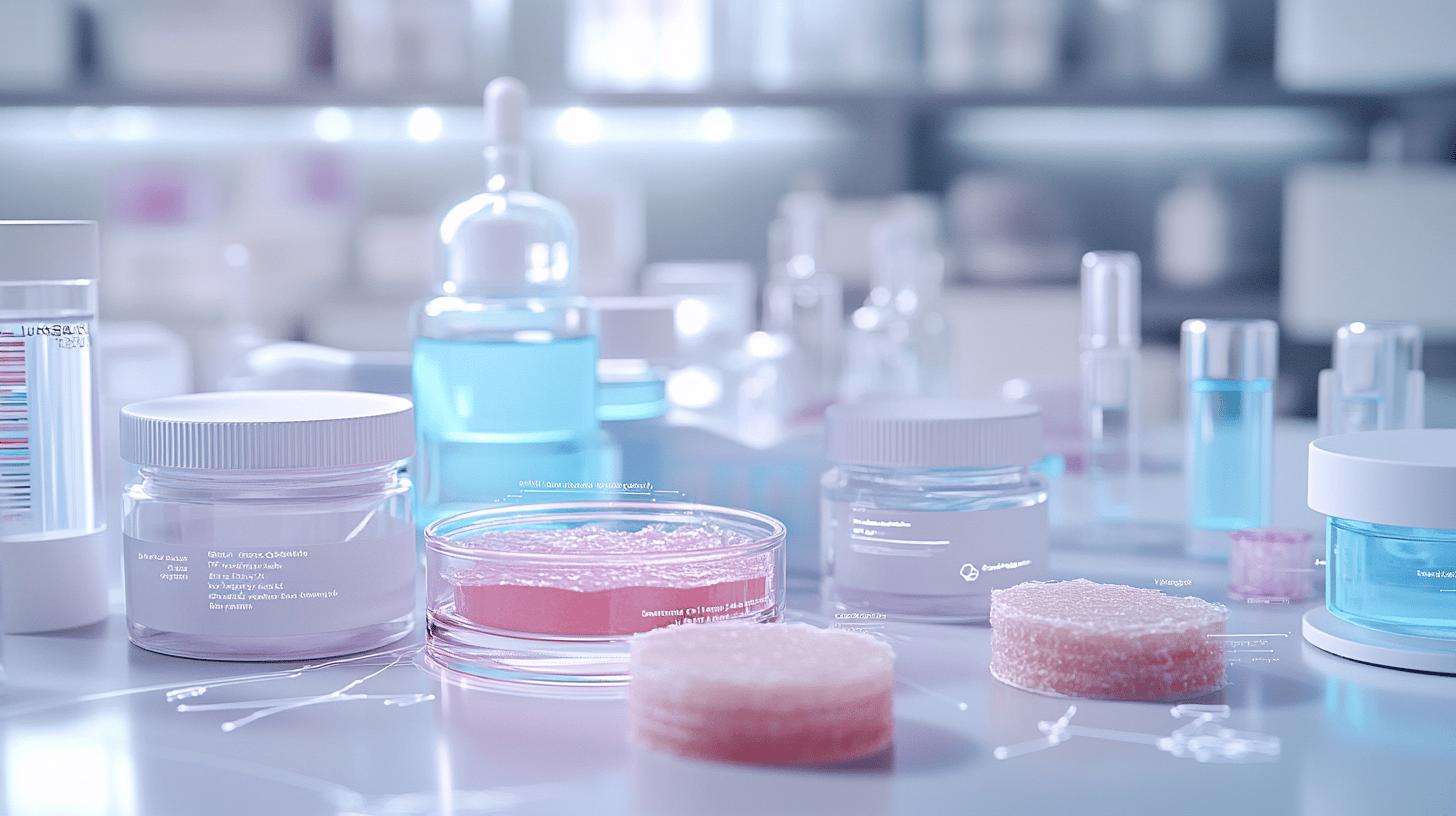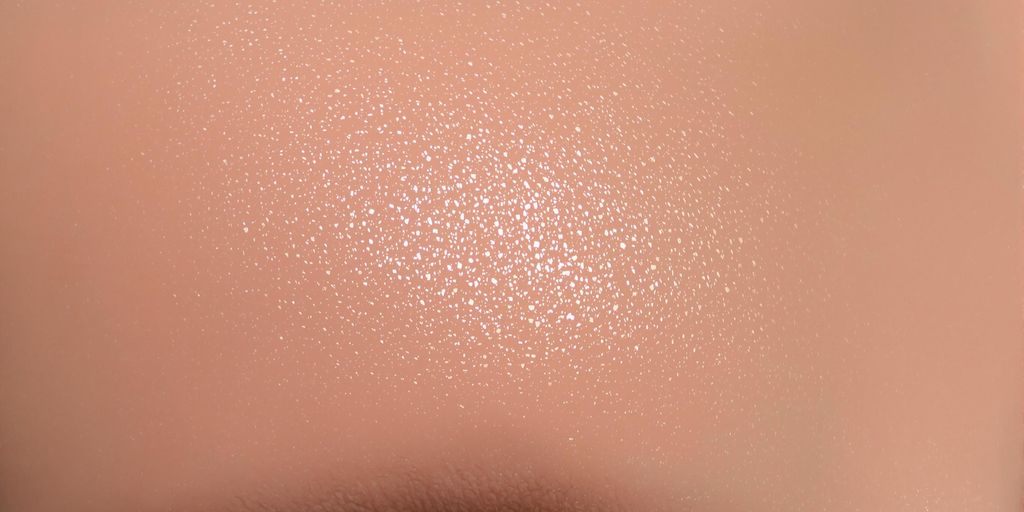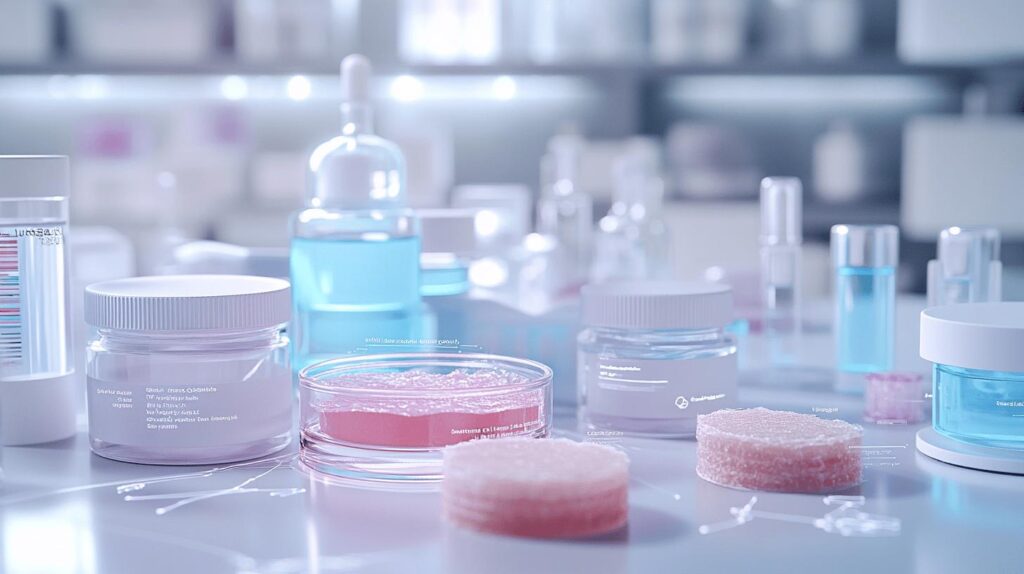Is your skincare routine neglecting the powerful role of collagen? Accounting for 70% of the skin’s composition, collagen is not just a buzzword but the cornerstone of skin structure, elasticity, and resilience. However, this essential protein begins its decline in your mid-20s, at a rate of about 1% per year. While natural loss is inevitable, understanding collagen’s science allows you to enhance skin health both naturally and clinically. Explore how nourishing this vital component can ensure a youthful and vibrant appearance, and discover the best methods to incorporate collagen into your skincare routine.
Understanding the Science of Collagen in Skin Health
Collagen is a vital protein in the human body, representing about 30% of its total protein content and a significant 70% of the skin’s composition. This fibrous protein is fundamental in maintaining the skin’s structure, elasticity, and resilience, serving as a scaffold that supports skin and connective tissues. As a primary component of the extracellular matrix, collagen contributes to the firmness and suppleness of the skin, making it essential for a youthful appearance. Its presence is also critical in wound healing and tissue regeneration, underscoring its biological significance in maintaining overall skin health.
The role of collagen in skin elasticity and firmness is profound. Collagen fibres create a dense network that provides tensile strength to the skin, ensuring it remains firm and smooth. This network supports the skin’s ability to stretch and return to its original shape, which is crucial for preventing sagging and the formation of fine lines. As collagen fibres bind water, they also contribute to skin hydration, which is paramount for maintaining a radiant and youthful complexion. The loss of collagen fibres over time results in diminished skin elasticity, leading to visible signs of ageing, such as wrinkles and sagging.
- Provides structural support to skin and tissues
- Maintains skin elasticity and firmness
- Enhances skin hydration and moisture retention
- Aids in wound healing and tissue regeneration
- Prevents the formation of fine lines and wrinkles
Collagen production begins to decline in the mid-20s at a rate of approximately 1% annually. This gradual decrease leads to thinner, less elastic skin, making it more susceptible to the effects of gravity and environmental stressors. As collagen levels drop, the skin loses its ability to retain moisture, becoming drier and more prone to wrinkles and sagging. By the time individuals reach their 40s, the cumulative loss of collagen manifests as noticeable signs of ageing, including a reduction in skin density and an increase in visible fine lines. Understanding this natural decline emphasises the importance of proactive measures to support collagen production and skin health.
Natural Methods for Boosting Collagen Production
Dietary choices play a pivotal role in supporting natural collagen production. Foods rich in collagen-boosting nutrients, such as vitamin C, are particularly effective. These include citrus fruits, berries, and leafy greens, which are essential for collagen synthesis. Additionally, incorporating protein-rich foods like fish, chicken, and eggs can provide the amino acids necessary for collagen formation. Bone broth, a traditional collagen source, is renowned for its high levels of collagen and various minerals that support skin health. Including gelatin-based foods in one’s diet can also supply the body with the building blocks required to maintain and produce collagen.
- Consume antioxidant-rich foods to combat oxidative stress
- Avoid excessive sun exposure and use protective clothing
- Stay hydrated to support skin elasticity
- Incorporate omega-3 fatty acids to enhance skin barrier function
- Use skincare products with retinoids and peptides
- Maintain a balanced diet with adequate protein intake
Historically, traditional diets naturally included more collagen through the practice of nose-to-tail eating, where all parts of the animal were consumed. This approach provided a rich source of collagen and other nutrients that supported skin health. In contemporary times, this method is less common, but the benefits of such dietary practices remain significant. Consuming collagen-rich foods like bone broth and organ meats can help maintain healthy collagen levels in the skin, supporting its structure and resilience. Reintroducing these traditional dietary elements can be a natural strategy to enhance collagen production and overall skin health.
Clinical Approaches to Enhancing Collagen for Skin Health

Clinical treatments offer targeted solutions to enhance collagen production, addressing skin concerns with precision and efficacy. These treatments often utilise advanced technologies to stimulate collagen synthesis, resulting in firmer, more youthful skin. Procedures such as Morpheus8, Forma RF, PRP Therapy, and Profhilo are popular options, each with unique methodologies to activate collagen production. Morpheus8 combines microneedling with radiofrequency energy to remodel skin layers, while Forma RF uses radiofrequency to heat the deeper layers of skin, promoting collagen contraction and growth. PRP Therapy employs platelet-rich plasma to rejuvenate skin, and Profhilo involves injecting hyaluronic acid to boost hydration and elasticity.
Sculptra stands out as a noteworthy treatment for those seeking long-term collagen enhancement. Composed of poly-L-lactic acid, Sculptra works by stimulating the body’s natural collagen production over time. The procedure involves injecting the solution into the dermis, where it acts as a scaffold, encouraging fibroblasts to produce collagen. Unlike immediate fillers, Sculptra provides gradual, natural-looking results that develop over 6 to 8 months. Its effects can last up to two years, making it a favourable choice for those looking to maintain skin firmness with minimal maintenance. Regular top-up sessions every 12 to 18 months can help sustain the results.
| Treatment | Benefits |
|---|---|
| Morpheus8 | Improves skin texture and tightness; combines microneedling with RF energy |
| Forma RF | Non-invasive; enhances skin elasticity through radiofrequency |
| PRP Therapy | Uses natural growth factors, boosts collagen, and revitalises skin |
| Profhilo | Increases hydration and firmness; involves hyaluronic acid injections |
| Sculptra | Long-lasting collagen stimulation; gradual natural results |
The Benefits of Collagen Supplements for Skin Health
Collagen supplements are available in various forms, including powders, tablets, drinks, and gummies, each designed to bolster the body’s collagen reserves. Hydrolysed collagen supplements, in particular, are prized for their enhanced absorption. What makes hydrolysed collagen unique? It is broken down into smaller peptides, allowing for efficient uptake and utilisation by the body. These peptides circulate in the bloodstream and are deposited in the skin, where they stimulate collagen production and improve skin structure. This enhanced bioavailability makes hydrolysed collagen a preferred choice for those looking to support skin health effectively.
- Increases skin elasticity, reducing the appearance of sagging
- Enhances skin hydration, leading to a plumper appearance
- Diminishes the visibility of fine lines and wrinkles
- Supports skin density and firmness
- Promotes a more radiant and youthful complexion
Collagen supplements have been extensively studied for their efficacy and safety. What do scientific studies suggest about their effectiveness? Research indicates that regular consumption of collagen peptides can lead to noticeable improvements in skin texture and hydration. These supplements are generally well-tolerated, with a strong safety profile, and are considered safe by health authorities such as the European Food Safety Authority. With no known drug-nutrient interactions, collagen supplements can be seamlessly integrated into daily routines, offering a natural approach to enhancing skin health and combating the signs of ageing.
Integrating Collagen-Boosting Practices into Your Skincare Routine
When choosing skincare products aimed at enhancing collagen, what ingredients should one look for? Look for products containing retinoids, peptides, and hyaluronic acid. Retinoids are known for their ability to promote cell turnover and stimulate collagen production, leading to improved skin texture and reduced signs of ageing. Peptides, small chains of amino acids, signal the skin to produce more collagen, contributing to firmness and elasticity. Hyaluronic acid, a natural humectant, helps maintain skin hydration, which is essential for supporting collagen integrity. Incorporating these ingredients into your skincare routine can effectively enhance skin health and resilience.
To further support collagen production, which lifestyle practices are most effective? Engaging in regular exercise and maintaining a balanced diet rich in collagen-boosting nutrients are highly beneficial. Exercise increases blood flow, which delivers essential nutrients to the skin, aiding in collagen synthesis. A diet abundant in vitamin C, found in citrus fruits and leafy greens, is crucial for collagen production. Additionally, ensuring adequate protein intake provides the amino acids necessary for building collagen. By combining these lifestyle practices with topical skincare products, one can enhance overall skin health and maintain a more youthful appearance.
Final Words
Exploring “The Science of Collagen: Boosting Skin Health Naturally and Clinically” offers a comprehensive approach to enhancing skin vitality. Understanding collagen’s fundamental role in skin health illuminates its significance in maintaining elasticity and resilience.
Embracing both natural methods and clinical interventions provides diverse paths to optimise collagen levels. Incorporating collagen-boosting supplements further supports skin wellness and anti-aging goals.
Ultimately, integrating these practices into daily routines can lead to rejuvenated, healthier skin. This holistic approach ensures a balanced blend of science and natural care for sustaining youthful, radiant skin.
FAQ
How to restore collagen in the face?
Restoring collagen in the face can be accomplished through a combination of diet, skincare, and lifestyle. Incorporate vitamin C-rich foods, apply collagen-stimulating topicals, and protect skin from UV exposure for optimal results.
How do you restore collagen in the face naturally?
To naturally restore collagen in the face, consume foods rich in collagen-boosting nutrients, engage in regular exercise, and limit sun exposure. These practices support natural collagen production and maintain skin health.
Why do collagen supplements not work?
Collagen supplements may not show noticeable results for everyone due to individual differences in absorption and effectiveness. It is crucial to choose high-quality hydrolysed collagen for better benefits.
How do you increase collagen in the skin naturally?
Increasing collagen in the skin naturally involves consuming a balanced diet with vitamin C and antioxidants, engaging in regular physical activity, and minimising harmful factors like UV exposure and smoking.
What are the best collagen supplements?
The best collagen supplements are those that contain hydrolysed collagen peptides, which are easily absorbed by the body. These supplements support skin elasticity and hydration and reduce the appearance of wrinkles.
What is the best collagen for saggy skin?
For saggy skin, select collagen supplements that contain hydrolysed collagen to improve skin elasticity and firmness. Additionally, clinical treatments like Sculptra may provide gradual collagen stimulation and structural support.
What are the signs of collagen loss in the face?
Signs of collagen loss in the face include sagging skin, increased wrinkle formation, and reduced skin elasticity. Fine lines and a loss of youthful volume can indicate declining collagen levels.
How to restore collagen naturally?
To restore collagen naturally, focus on a nutrient-rich diet, exercise regularly, and avoid factors that accelerate collagen degradation, such as smoking and excessive sun exposure.
Is collagen scientifically proven to help skin?
Collagen is scientifically proven to enhance skin health. Studies indicate improved skin elasticity, hydration, and reduced wrinkles with regular hydrolysed collagen supplement intake.
Is there any science behind taking collagen?
Scientific evidence supports taking collagen supplements, particularly hydrolysed collagen, which is linked to improved skin elasticity, hydration, and a reduction in visible signs of ageing.
What does the Mayo Clinic say about taking collagen?
The Mayo Clinic acknowledges that while collagen supplements may improve skin health, more extensive research is needed to evaluate the long-term benefits and mechanisms.
Can you rebuild collagen in your skin?
Yes, collagen in the skin can be rebuilt through dietary strategies, clinical treatments, and skincare products that stimulate collagen production and enhance the skin’s structural integrity.







